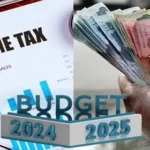The claim of inflation dropping in Pakistan while the poor continue to struggle to live is a stark reminder of the disparity between macroeconomic indicators and ground realities. While statistics may show a slight decrease in inflation, the lived experiences of ordinary Pakistanis paint a much bleaker picture. The narrative of economic improvement often overlooks the harsh truth that many families are grappling with daily: the inability to afford basic necessities, the anguish of unemployment, and the despair of watching loved ones suffer.
The case of Arshad Jamal, a property dealer driven to suicide, and the tragic incident of an unemployed man poisoning his family highlight the human cost of economic hardship. These are not isolated incidents but symptoms of a deeper systemic issue that needs urgent attention.
Inflation doesn’t just affect numbers on paper; it affects the quality of life for millions. The soaring prices of essential goods mean that even maintaining a decent standard of living has become an insurmountable challenge for many. Families are forced to make agonizing choices between food, shelter, and healthcare, with little hope for a better tomorrow.
The failure of successive governments to address food security and mitigate the impact of inflation has only exacerbated the suffering of the most vulnerable. While policymakers may tout economic reforms and bailout programs, the reality on the ground remains grim for those at the bottom of the socioeconomic ladder.
It’s imperative for the government to move beyond rhetoric and take concrete steps to alleviate the suffering of its citizens. This includes implementing targeted social welfare programs, investing in job creation, and ensuring fair wages for workers. Also, there needs to be greater transparency and accountability in economic policies to prevent further exploitation of the marginalized.
Inflation may be a complex economic phenomenon, but its consequences are painfully simple for those struggling to survive. It’s time for meaningful action to bridge the gap between economic growth and human well-being in Pakistan.






























